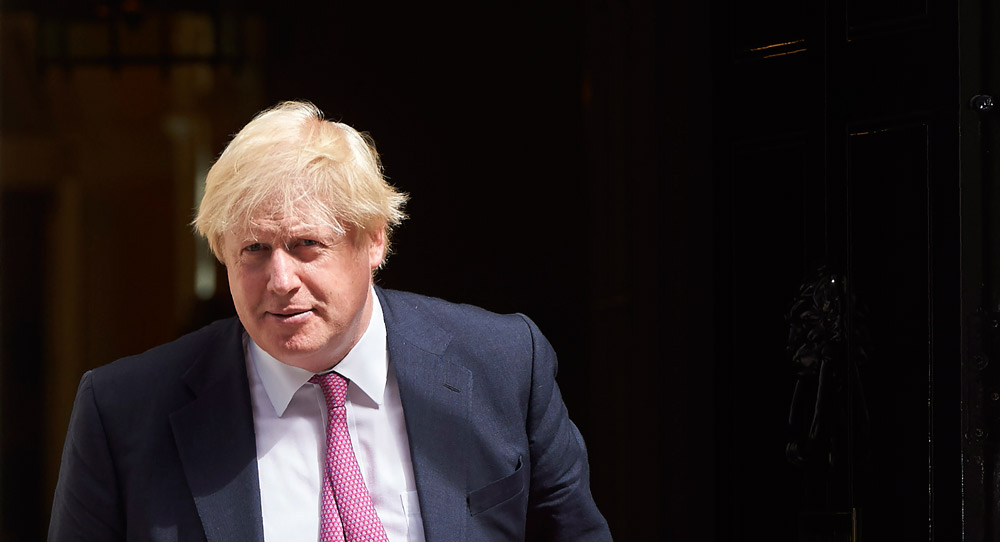One of the underdiscussed aspects of Brexit is the immense damage it will do to Britain’s standing as a global foreign policy player. Many commentators concentrate on the UK’s future relationship with the EU single market and customs union, the status of EU citizens in Britain or of Brits in Europe, or what role the European Court of Justice will have in the UK. But the biggest change when Britain leaves the EU will be London voluntarily giving up its seat in the forum that decides on the future of Europe.
For centuries, Britain expended blood and treasure to ensure that Europe was open for British commerce; that no dominant continental power, ideology, or faith took over; and that the values of liberalism, democracy, and the rule of law spread across the continent.
In recent decades, Britain has had a seat, a vote, and a voice in all the big-ticket decisions on Europe’s direction of travel. British diplomats, officials, and stellar leaders like Margaret Thatcher and Tony Blair magnified their influence by cajoling, persuading, and nudging the rest of Europe in a desired direction for Britain. This meant building alliances and accepting some pushback, but Britain has had more power and influence in Europe in recent decades than at any previous time in history. In every world capital, at the WTO, and in other international bodies, British diplomats would meet with fellow EU colleagues and try to push an agenda close to desired British interests.
All this comes to a shuddering stop with Brexit—irrespective of whether Britain’s exit from the EU will be hard or soft or follow the Norwegian or Swiss model. Overnight, Britain will become an international policy player that has to cool its heels in the waiting rooms of EU deciders, from the European Council to the European Commission to the European External Action Service. There will be no point in anyone in Washington, Beijing, New Delhi, Lagos, or Brasília asking the British ambassador what Europe is going to do or say on key global issues, because the answer can only be “Search me!”
Yes, this enfeebled post-EU Britain will retain its seat as a permanent member of the UN Security Council. London can still join the line of visitors from Berlin, Paris, and Warsaw in seeking an audience with the U.S. president. The Commonwealth will be always there. Britain will remain in NATO, the Organization for Security and Cooperation in Europe, and the Council of Europe. These are all worthwhile organizations, but none has anything like the importance of the nations of Europe that work in concert on a permanent institutionalized basis as members of the European Union.
So the UK will revert to bilateral diplomacy. Fantasists hope this will mean a return to glory for the Foreign and Commonwealth Office (FCO), but the money is not and will not be there. On the playing field on which Britain has sought to be present, exercise influence, shape the rules, and defend its core interests, the UK will henceforth be on the touchline. The FCO is proposing to hold a Western Balkans conference in 2018. It is a good initiative, but who outside the EU will care what Britain thinks or proposes for this still troubled and turbulent region?
From Islamist terrorism to environmental policies to the protection of Europe’s borders, Britain will be disconnected from all the main EU players. Of course, there will be polite welcomes for the British prime minister and foreign secretary, but the UK’s third-country status will mean London’s envoys have the same rank as those from Mexico, Turkey, or South Korea.
London will cease to be the foreign policy discussion center of the world outside Washington. Established London-based foreign policy think tanks like Chatham House, the International Institute for Security Studies, and the Royal United Services Institute or newcomers like the Centre for European Reform and the European Council on Foreign Relations have high reputations. They will become less relevant and attract less global funding as the UK amputates itself from EU foreign policy decisions because its foreign ministers and officials are no longer locked into core European policymaking.
As university departments that teach and research European foreign policy lose EU funding, and policy NGOs that receive EU money and bring together European researchers also reduce their activities, the buzz of London as Europe’s no. 1 international policy forum will dwindle.
As an FCO minister, I met regularly with EU opposite numbers and was able to report to Blair on the politics of what was happening in the rest of Europe. Outside the EU, Britain will be looking in as EU member states get on with deciding on everything from European policing and justice policies to deployments of EU armed interventions to troubled regions of Africa or Arab countries.
Brexit is the biggest influence-reducing move ever seen in Britain’s history of international relations. It is astonishing that the UK foreign policy establishment has not expressed concern. The overwhelming focus in the Brexit debate on trade and immigration has sidelined the coming loss of British influence, which is without precedent in British history.
Former UK foreign secretary William Hague and former NATO secretary general George Robertson have called for the UK to have observer status at EU foreign policy meetings. But then why not Turkey or, indeed, the United States? This is precisely the cherry-picking approach that the other 27 EU members reject. When Britain leaves the EU, it will have no say and little influence over the future geopolitical direction of travel of its region of the world.
Denis MacShane was a parliamentary private secretary and minister at the UK Foreign and Commonwealth Office from 1997 to 2005 and UK delegate to the Council of Europe and NATO Parliamentary Assemblies from 2005 to 2010.








.jpg)